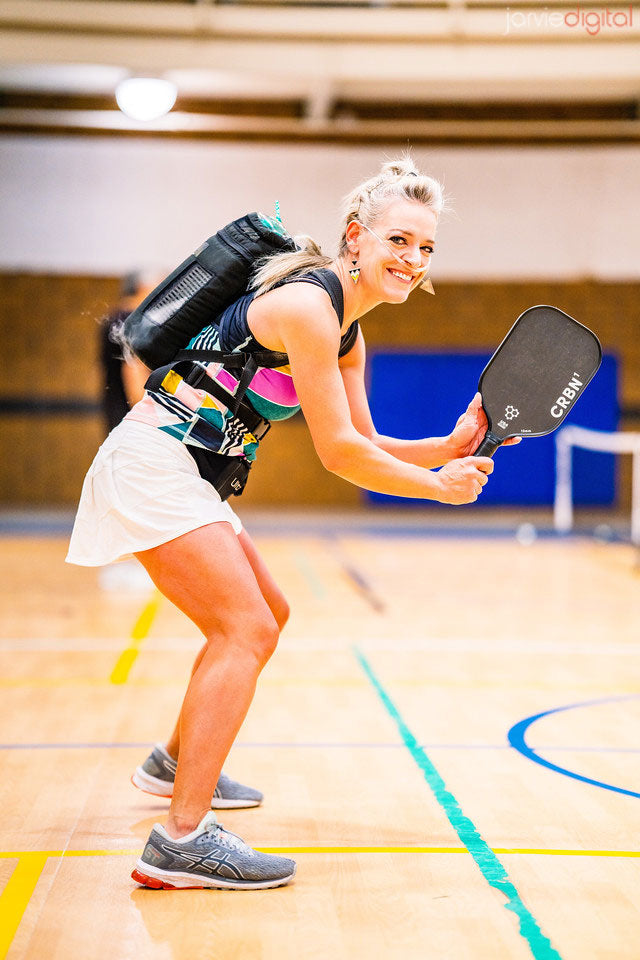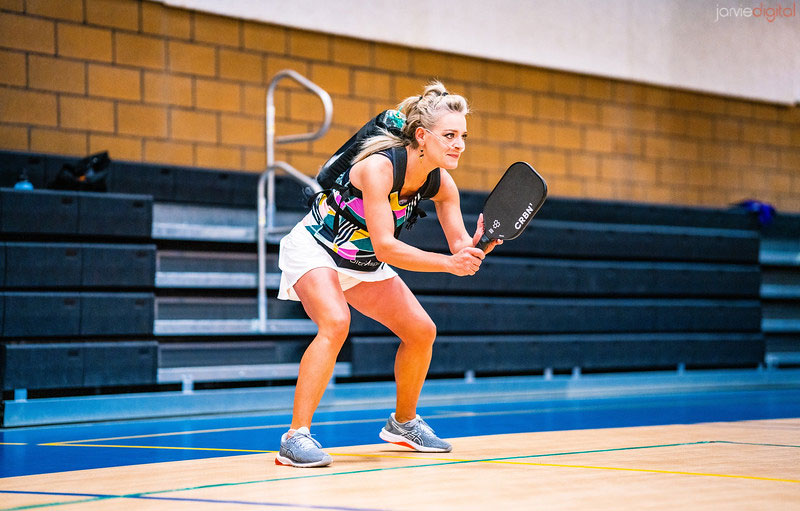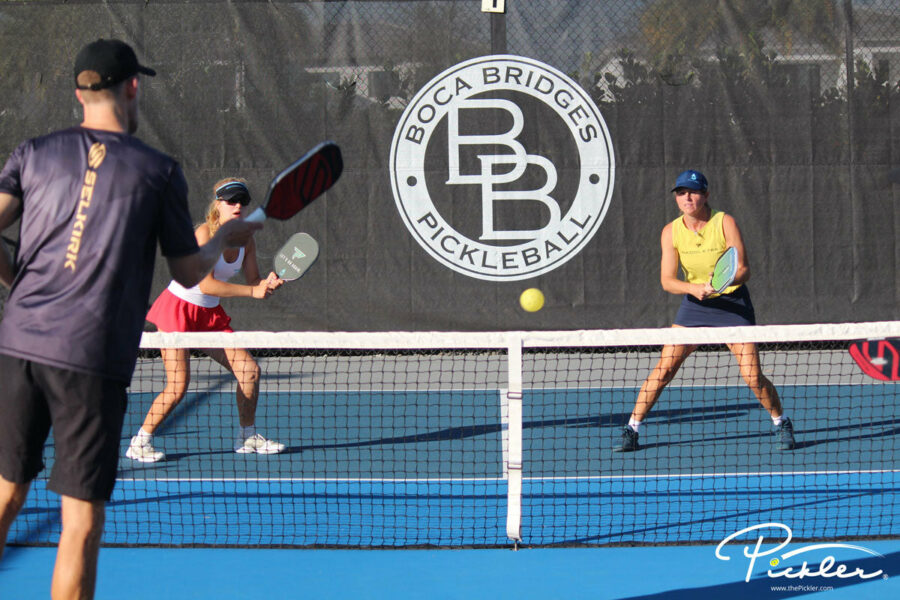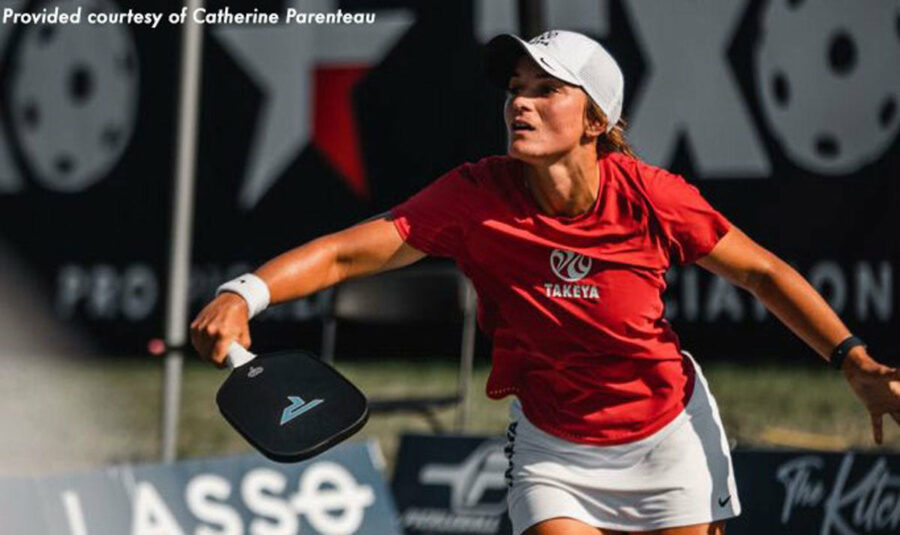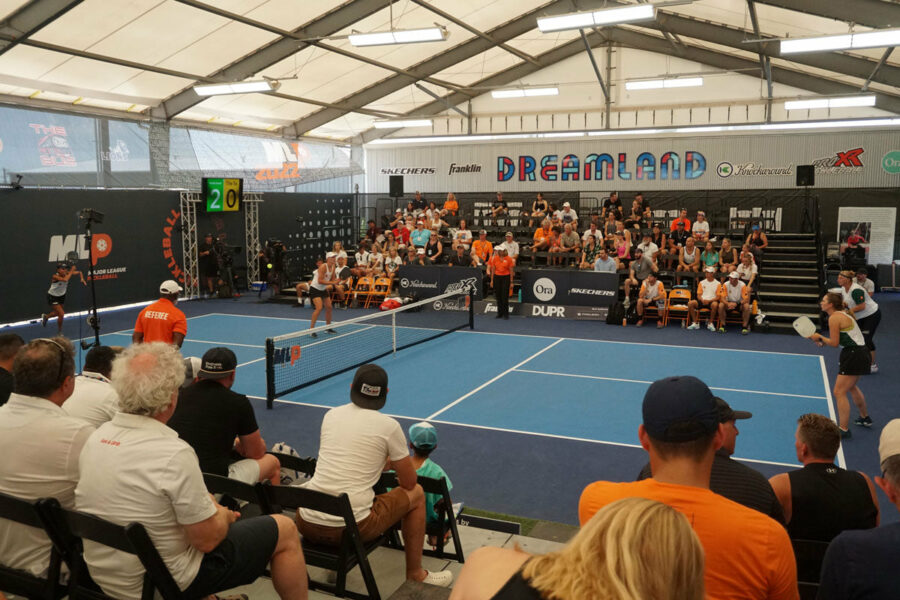Angela Gallafent is a 3.5 pickleball player who is anything but ordinary.
The 45-year-old Utah woman may not be the most fearsome opponent anybody could ever face on a pickleball court. But she’s bound to be the most inspiring.
Earlier this year, Gallafent was sitting in a hospital emergency room, dealing with an infection in the central intravenous line that provides round-the-clock medication to her heart.
While waiting for medical treatment, she was browsing a pickleball Facebook group, The Kitchen, which she had just discovered the previous day. And in particular, she scrolled on an item posted by pickleball pro and coach Dayne Gingrich, who asked a simple question: “What drives you to play?”
Gallafent had nothing better to do as she waited for treatment on that June day, so she typed out an answer on her phone. It read, in part:
Then, because she is frequently exhausted, she fell asleep. By the time she had woken up in the ER from her nap, her phone had exploded with reverential replies from other pickleball players.
She had gone viral. And not in a bad way.
Gallafent and her twin sister were both born three-months premature. Without fully formed lungs, they were only able to survive at birth by an intervention of supplemental oxygen, an intervention that left a lifelong reliance on breathing assistance.
Her condition, which is formally called “pulmonary arterial hypertension” makes her feel perpetually winded.
“It’s like I’m running at a slow jog all day long,” she told The Pickler. “It’s very fatiguing. I have to take a couple of naps a day.”
To deal with this condition, Gallafent wears a backpack that contains a 15-pound canister of liquid oxygen that connects to the nasal cannula across her face.
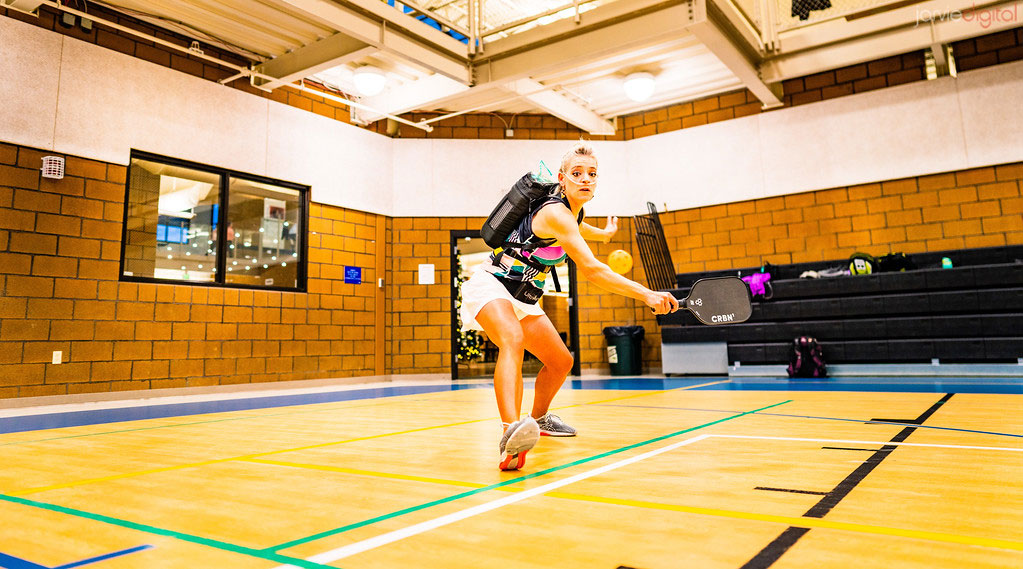
This is not the common kind of supplemental oxygen. Most patients requiring breathing assistance get it through an oxygen concentrator that takes regular air and purifies it to intensify the oxygen concentration, then moves it with a compressor in a portable device.
Gallafent medically requires oxygen in its liquid form, which is far more concentrated and difficult to obtain. It’s not available where she lives in Utah. So once a week, she drives six hours to her other home in Pocatello, Idaho, where she has an oxygen supplier.
“I can’t move out of Idaho,” she said, “because if I do, I won’t be able to get my liquid oxygen.”
She used to wear the backpack all the time, but she has weaned herself from it over time. But anytime she plays pickleball, it’s a must.
That’s because her body reacts to exercise in a reverse fashion. Instead of exertion causing her blood vessels to dilate, and thereby allowing more oxygen to flow, her blood vessels constrict when she exerts herself. And it quickly elevates her heartbeat.
“When this happens, without oxygen on, I get chest pains and I have to stop what I’m doing within 20 seconds.”
But here’s the thing. As difficult as it is to exercise with her condition, she has found that it has benefited her by lowering her pulmonary pressure, a real health benefit.
“I had one month when I couldn’t play pickleball,” she said, “and my lips started turning blue. I could tell my heart was being deconditioned.
“I needed pickleball to keep my pulmonary pressure down,” she said. “For my physical and mental health, I just have to do it.”
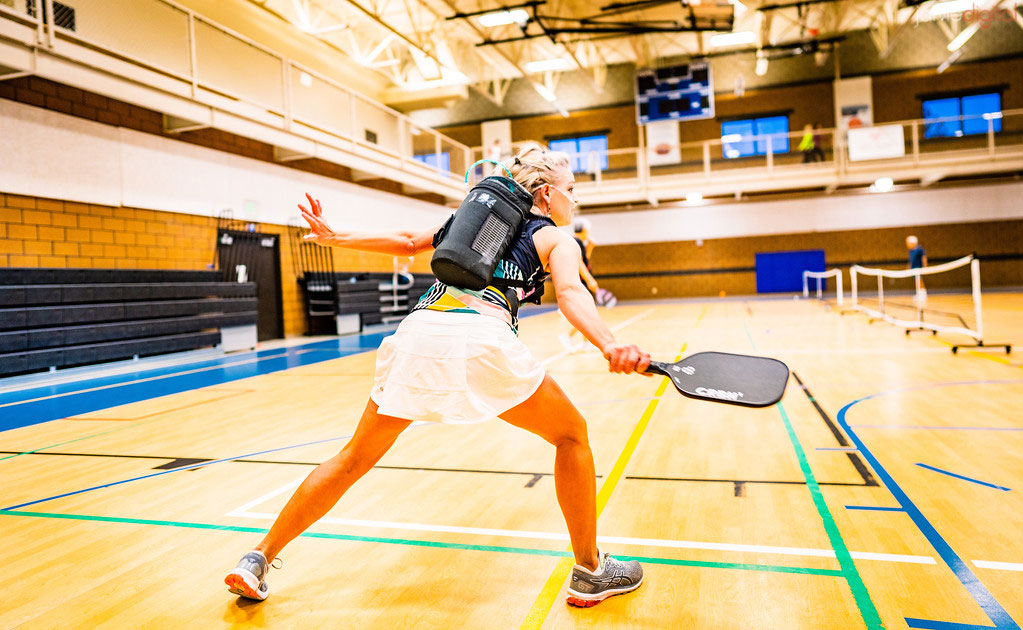
Gallafent learned to play pickleball in 2013 in St. George, Utah (although her home is just outside of Orem). And like so many other pickleball players, she became addicted to the game.
And she has recently gotten more time to play. Gallafent is trained as a physician assistant. But it’s a career she has had to give up in 2020 due to the COVID-19 pandemic, which made it too risky to work in a medical setting in the midst of such an easily transmitted respiratory virus.
She estimates that she plays pickleball three days a week during the winter, and five or six times a week during the summer, which also include some tennis.
“I usually get a few stares,” she said. “Some people ask if it’s going to be safe to play with me.”
Much to her delight, Gallafent has gotten her twin sister to take up pickleball this year, and the sight of both women playing with their oxygen backpacks is a hoot, she said.
Gallafent is philosophical about it all. And she speaks like a natural motivational speaker, a career she’d like to explore.
“We all have our own normal,” she said. “Maybe your normal is a bad back. Or maybe it’s that you can’t breathe. But finding happiness is when you find acceptance of who you are, and being that best version of yourself.”
